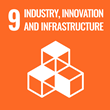Project information
Concept development for a research infrastructure to manage, integrate and sustain large medical cohort studies
(INTEGRATE-LMedC)
- Project Identification
- 101131809
- Project Period
- 1/2024 - 12/2026
- Investor / Pogramme / Project type
-
European Union
- Horizon Europe
- Research Infrastructures
- MU Faculty or unit
- Faculty of Science
- Cooperating Organization
-
University Hospital Groningen
European Clinical Research Infrastructure Network - ECRIN
Helsinki University Central Hospital
Biobanking and BioMolecular resources Research Infrastructure - European Research Infrastructure Consortium
- Responsible person Jens Habermann
Fraunhofer-Gesellschaft zur Förderung der angewandten Forschung e.V.
Norwegian University of Science and Technology
EBRAINS
Qi.Lab.Med Srl
Fundació Privada per a la Recerca i la Docencia Sant Joan de Déu
The INTEGRATE-LMedC consortium will develop a new concept to guide and support decision-making for the next-generation research infrastructure (RI) to facilitate efficient utilization and harmonization of large medical cohorts (LMedC) and accelerate scientific and medical breakthroughs in Europe and beyond. To identify areas of unmet medical need and for improved medical care, the partners will map the characteristics of relevant LMedC and RIs in Europe. The partners will generate a gap analysis to identify what is missing of cohort data and samples, RI tools and services, quality measures, governance models, user needs and the barriers for efficient utilization of these cohorts and RI, including ethical and legal frameworks. To identify IT technologies and architecture for suitable data stewardship and long-term availability of European RIs, the partners will prepare for a feasibility study for federated data analysis of LMedC. This entails identifying the appropriate IT technologies and security measures and piloting a harmonized data analysis of a few strategic cohorts to evaluate what is already possible and what still needs to be implemented to meet the gaps and challenges identified. The feasibility study will be based on two examples of use-cases: one stroke case using data from medical health registry data and one case using data from longitudinal population-based studies with different technical, legal, and ethical challenges. To ensure availability of data and samples related to existing and future LMedC studies and their re-use for secondary research, the partners will develop a concept outline including a governance plan and guiding principles for data access policies and data protection policy, whilst considering the FAIR principles and ELSI issues. Finally, an overarching RI concept to manage, integrate, and sustain LMedC studies will be developed, including an initial financial and operational plan for the implementation of the new RI.
Sustainable Development Goals
Masaryk University is committed to the UN Sustainable Development Goals, which aim to improve the conditions and quality of life on our planet by 2030.



